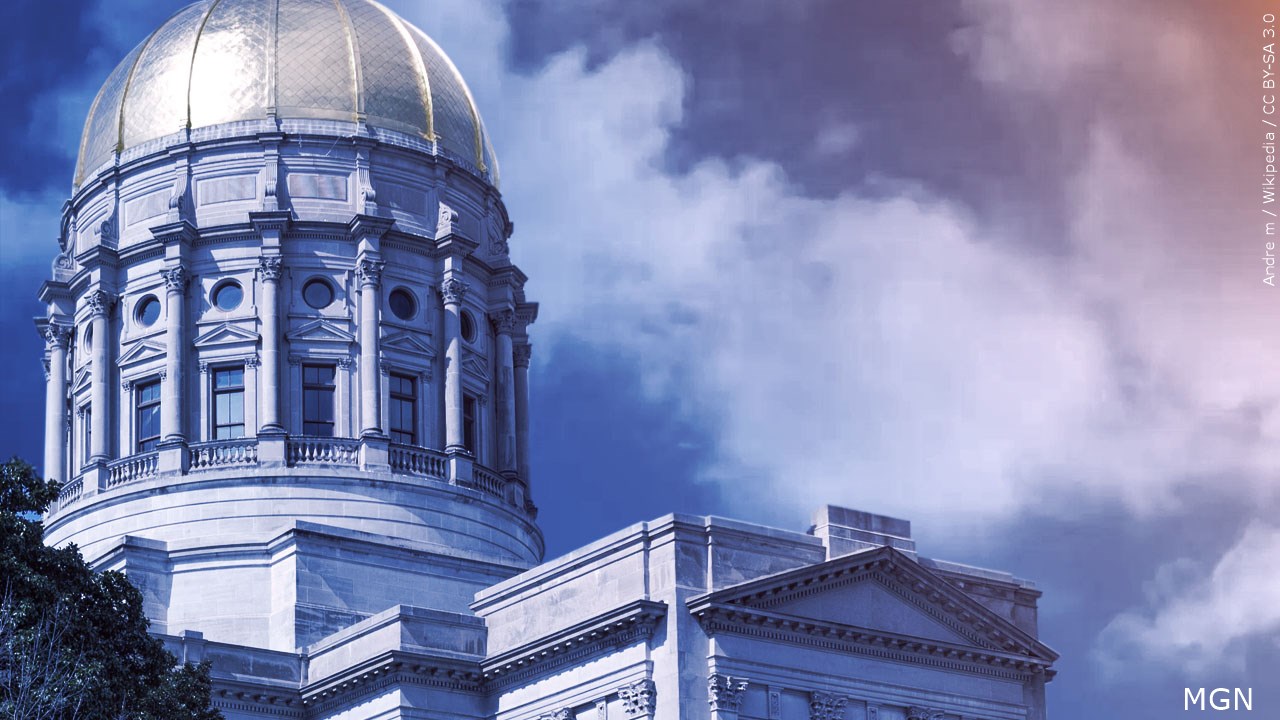ATLANTA (AP) -- Georgia lawmakers pushed through a flurry of bills before a key deadline Monday, the last day for legislation to pass either the House or Senate and advance to the other legislative chamber for consideration this year. Lawmakers on Monday rejected plans to legalize sports betting, while senators agreed to restrict gender-affirming care for children and teens younger than 18.
Some key proposals had already moved forward, including an income tax refund and a bill imposing longer prison sentences on some people convicted of gang crimes. A proposal that would have allowed voters in Atlanta's Buckhead neighborhood to vote on leaving the city had already failed.
Proposals that didn't pass Monday could still be resurrected later this year, but it becomes more difficult. Because this is the first year of a two-year session, bills that didn't pass Monday could also be considered next year.
TRANSGENDER CARE: Senate Bill 140 would ban most gender-confirmation surgeries and hormone replacement therapies for those under 18. It would still allow doctors to prescribe medicines to block puberty.
ANTISEMITISM: House Bill 30 would create a definition of antisemitism that could be referred to in hate crime prosecutions, as well as make it a crime to use swastikas with intent to terrorize.
LITERACY INSTRUCTION: House Bill 538 would mandate changes to how Georgia students are taught to read, while Senate Bill 211 would create a council to study changes.
TRUCK WEIGHTS: House Bill 189 would allow trucks carrying logging, farming and mining commodities to weigh up to 88,000 pounds (40,000 kilograms), compared to the current 84,000 pounds (38,000 kilograms).
JUVENILE CRIMES: House Bill 462 would raise the age for filing adult criminal charges against people from 17 to 18 for most crimes.
TAX ON DOWNLOADS: House Bill 170 would impose sales tax on books, music, movies, pictures, games and other digital goods bought online, although it would not affect rental or subscription items.
WRONGFUL CONVICTIONS: House Bill 364 would create a commission to decide how the state should compensate people who are wrongfully convicted, instead of letting lawmakers decide compensation on a case-by-case basis.
RENTER RIGHTS: House Bill 404 would require rental properties to be fit for human habitation when a renter signs a lease and would require a tenant to have at least three business days after rent is due before a landlord could file for eviction.
ELECTION FUNDING: Senate Bill 222 would make it a felony for local governments to accept money to fund elections from outside groups, except from the state or federal government.
ELECTRIC VEHICLES: House Bill 406 would allow electric vehicle owners to purchase electricity to charge their vehicles by the amount of power they use instead of the amount of time spent charging.
CRIMES AGAINST INFRASTRUCTURE: House Bill 227 would make it a crime to use electronic or physical means to attack systems providing electricity, water, sewer, internet, public transportation, emergency services and health care.
SAFE SCHOOLS: House Bill 147 requires schools to submit their safety plans to the state annually, requires an annual active shooter drill at each school and creates a school safety and anti-gang training program for teachers.
FOREIGN LAND OWNERSHIP: Senate Bill 132 would bar people and companies from certain foreign countries from buying farmland within 25 miles (40 kilometers) of any military base.
LIMITING LAWSUITS: Senate Bill 186 would have made it difficult to sue property owners if someone is injured because of the misconduct of a third party on the property.
BUCKHEAD CITY: Senate Bill 114 would have allowed residents of Atlanta's Buckhead neighborhood to secede from the city of Atlanta and create a new city, but the Senate voted it down.
GENDER IDENTITY IN SCHOOLS: Senate Bill 88 would have limited how public and private schools and camps could have talked to students about gender identity. A Senate committee tabled it.
PAPER BALLOTS: House Bill 426 would have let people inspect paper ballots after an election. Now, only electronic images are available.
VOTER CHALLENGES: Senate Bill 221 would have made it easier to challenge whether people are qualified to vote because of residency issues. The full Senate declined to consider it.
OKEFENOKEE PROTECTION: House Bill 71 would have barred mining near the Okefenokee Swamp in southeast Georgia. The bill did not advance out of committee.





/cloudfront-us-east-1.images.arcpublishing.com/tgam/5BNFJIP44VGB7C7T4OFSLKLDRA.jpg)







